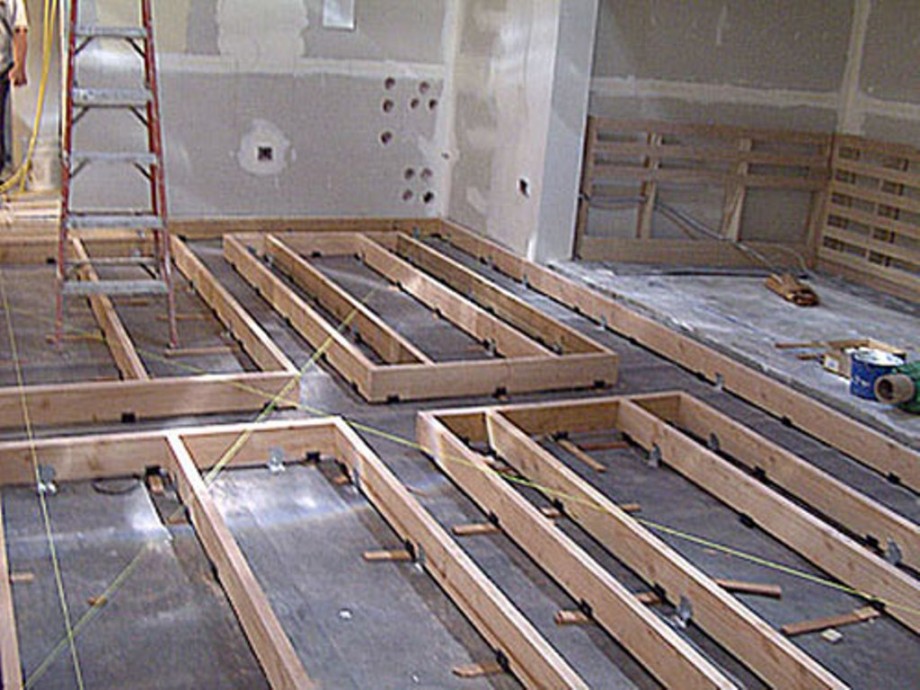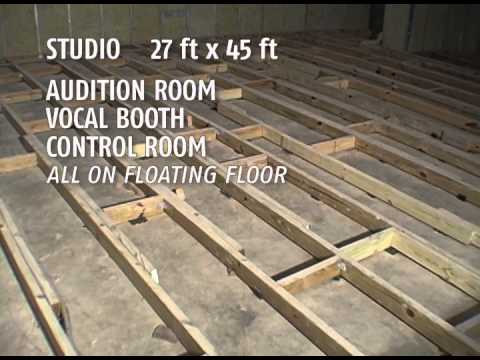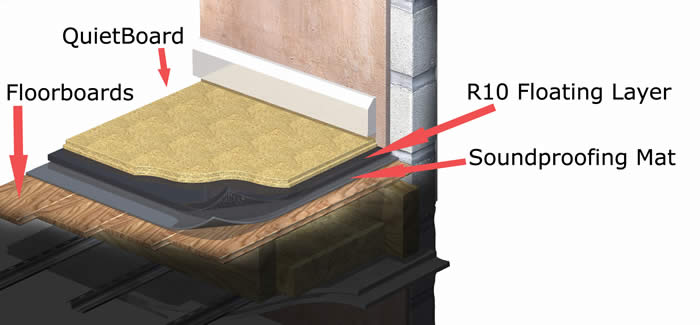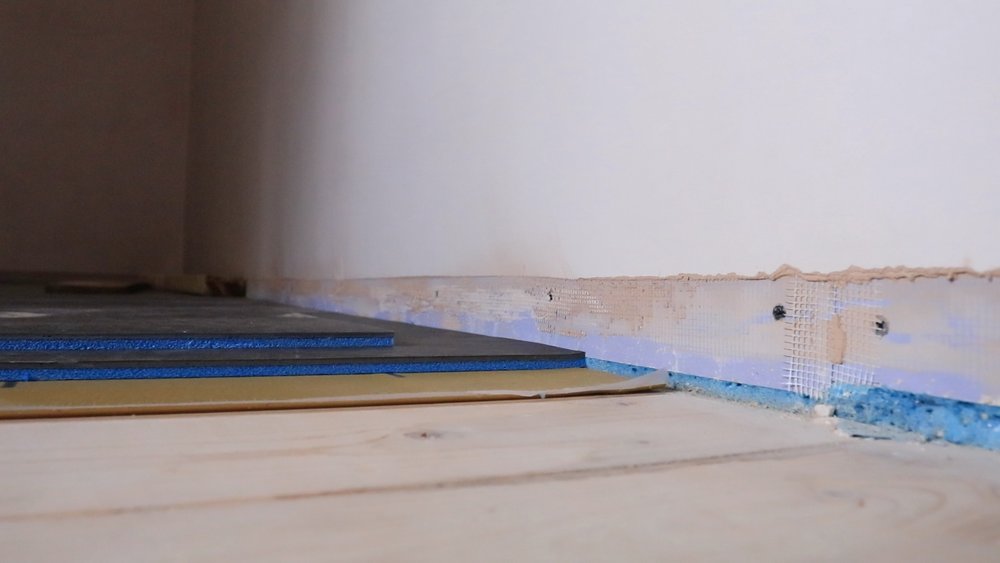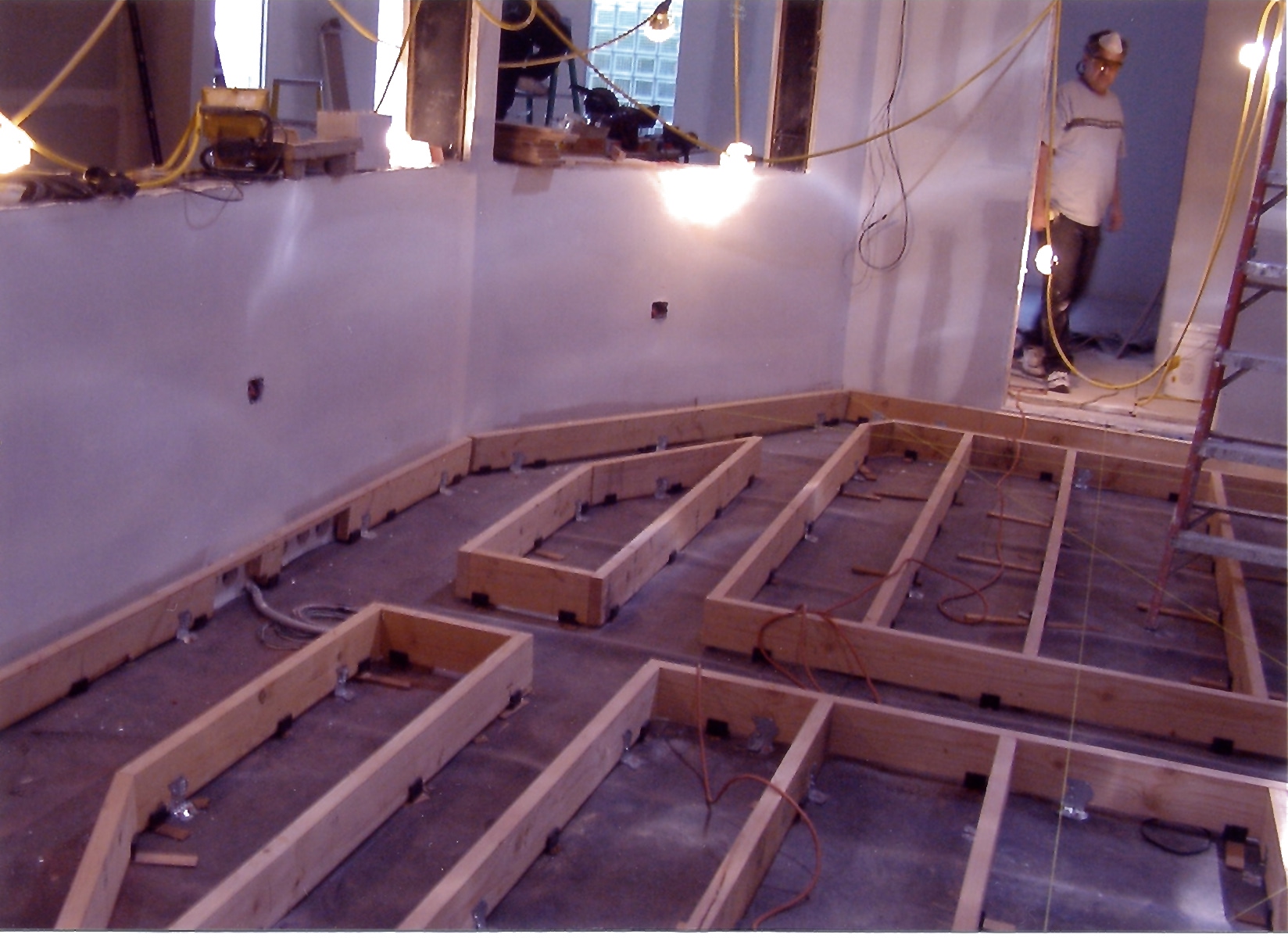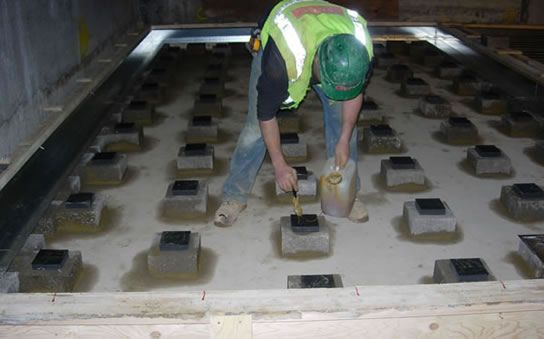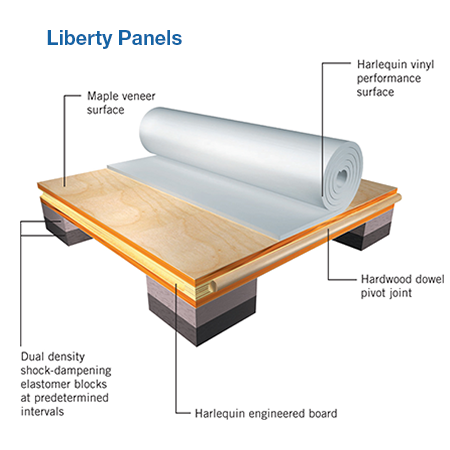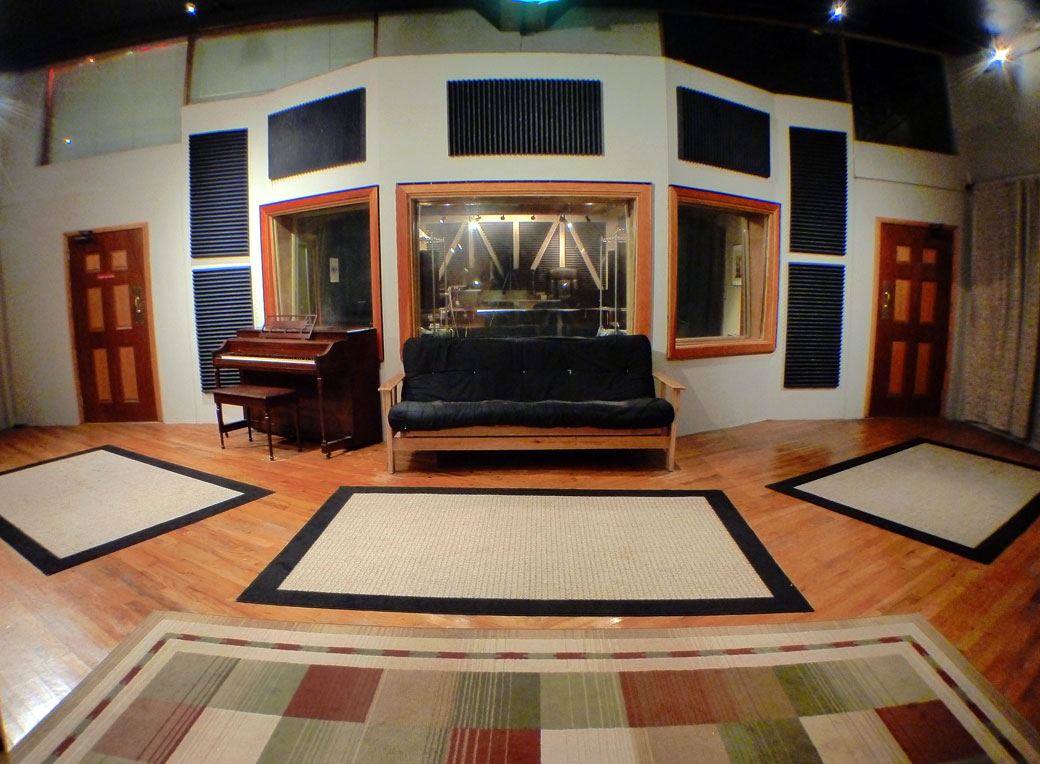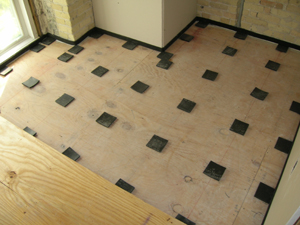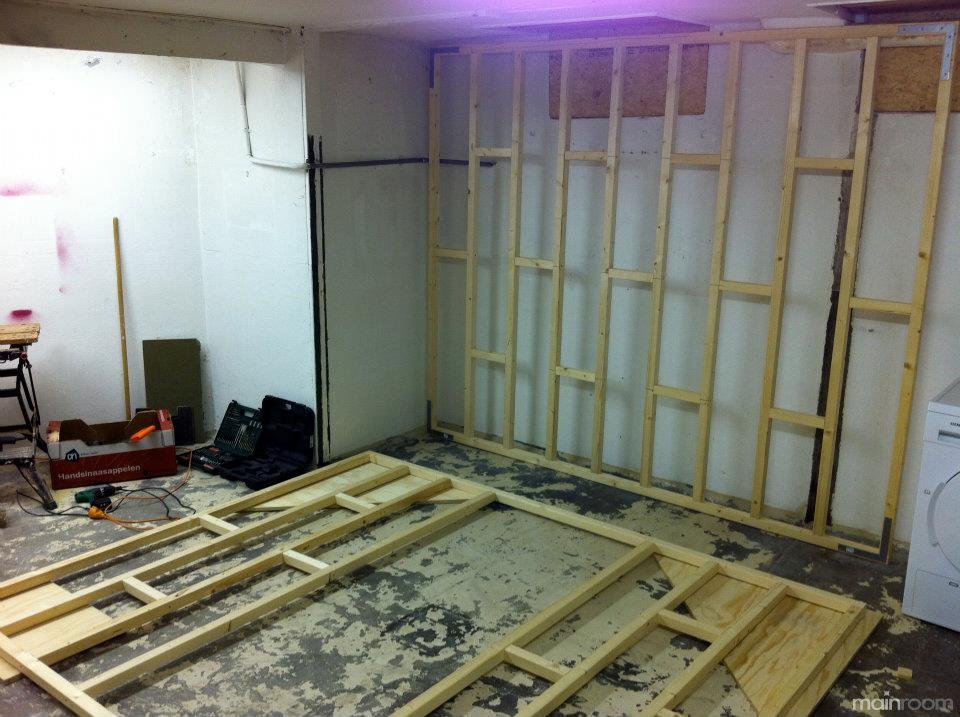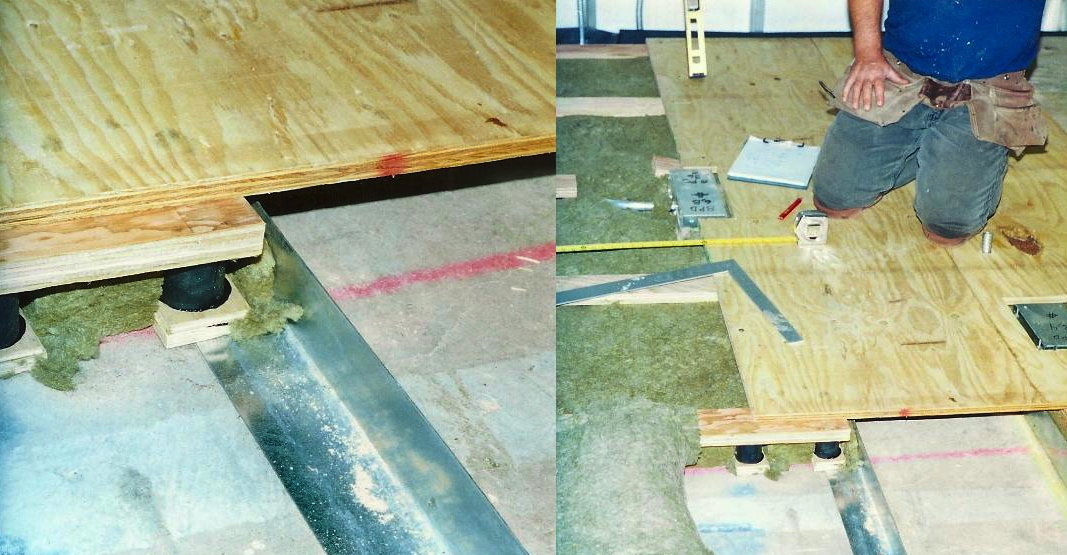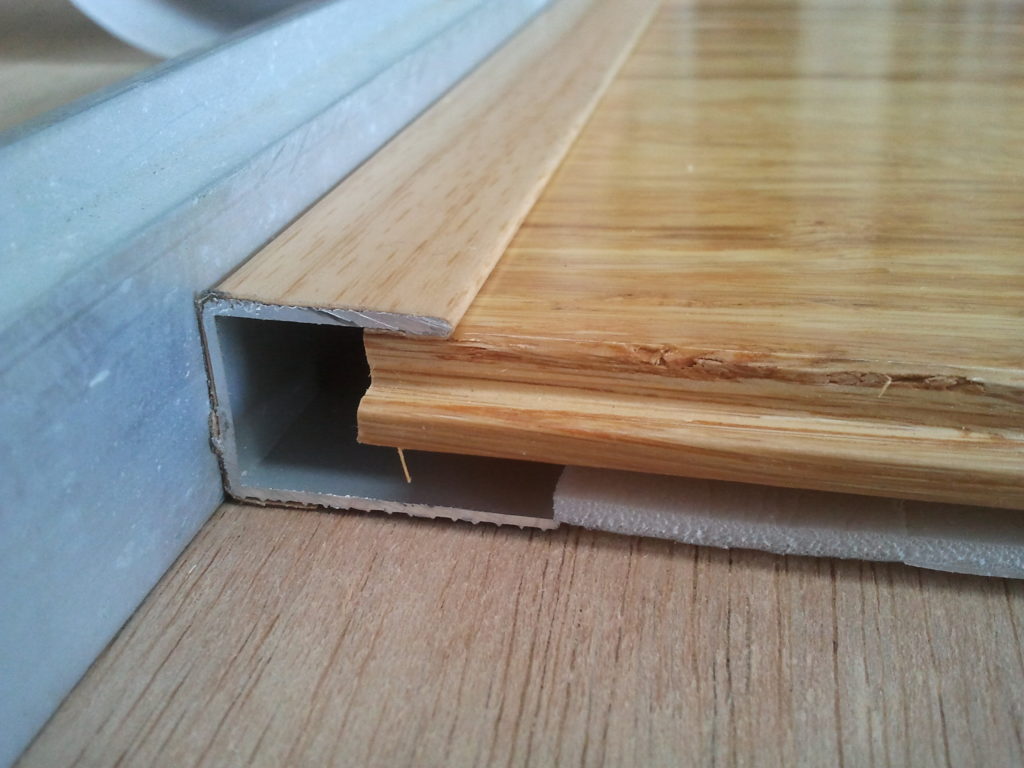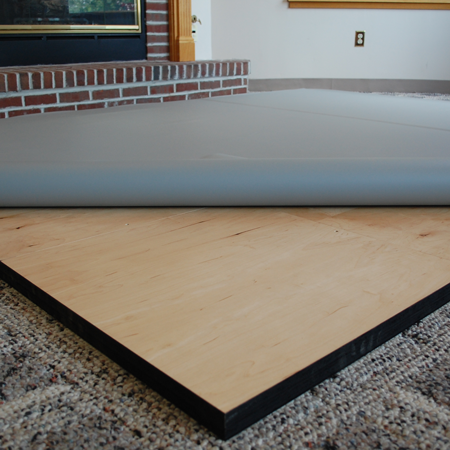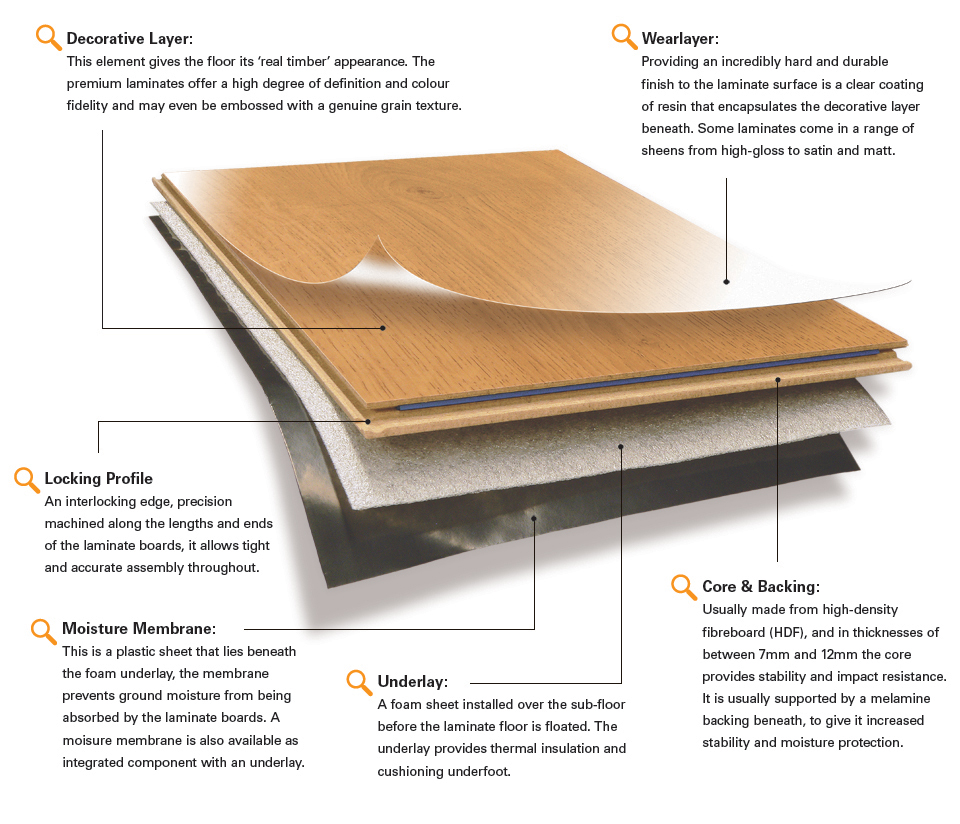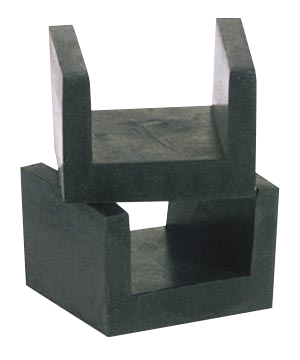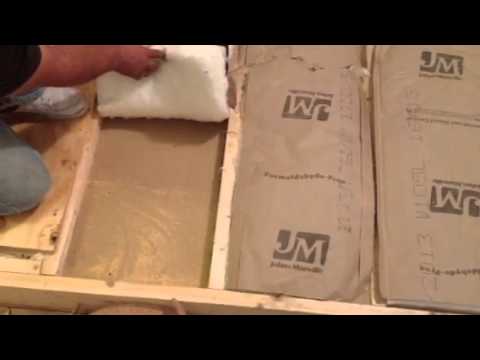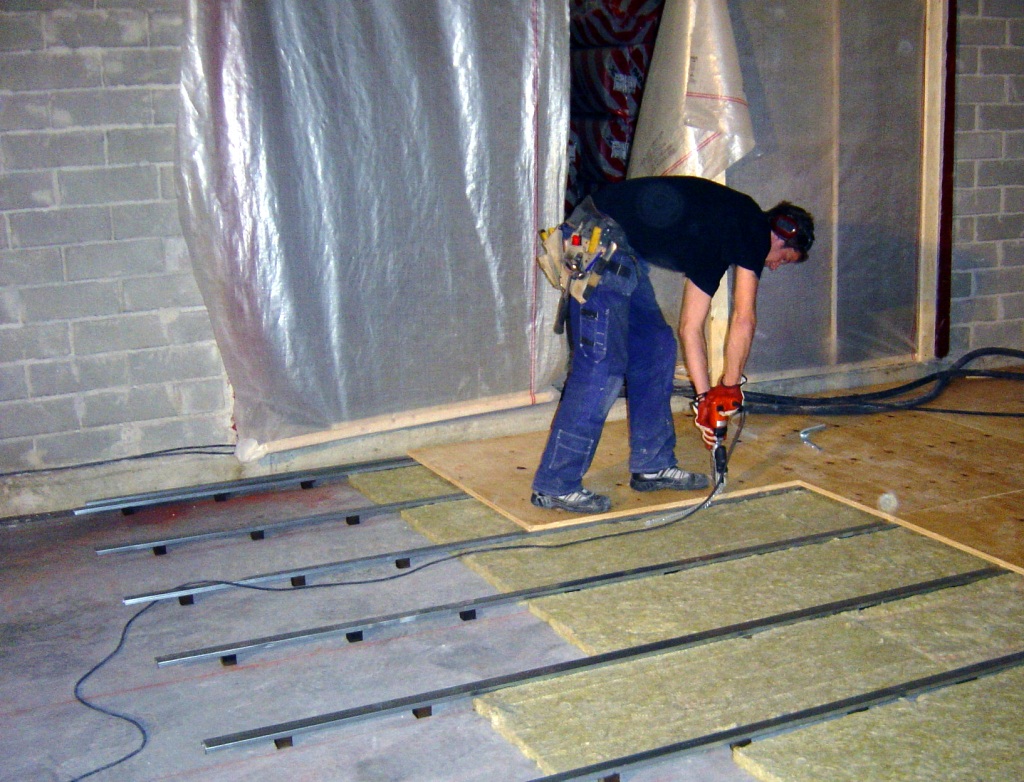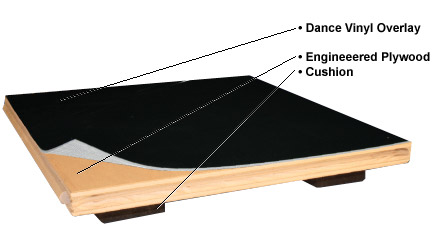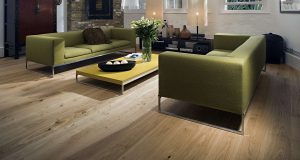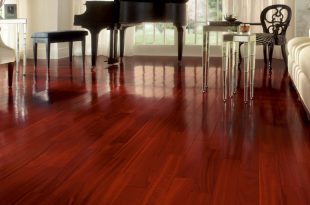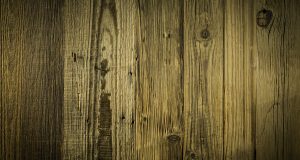A floating floor is one that is not nailed or glued to the subfloor. This floor gets s its name from the way it is installed, Sprung floor is a type of floating floor which prevents noise and vibration and is used in dance floors. This floor is built on a subfloor or in the case of renovation on an existing floor. It consists of felt, cork or glass fibre for insulation and has neoprene pads which hold the laminate floor. There is a gap between the wall s and the floor for decoupling and expansion. This space is covered by skirting boards and molding.
Installation of a floating floor
Wood flooring adds warmth and gives the house a cozy appearance. When renovating the quickest way to install a wooden floor is to set up a floating floor. Installing traditional solid wood strips takes a long time although once installed they last a long time too. Since a floating floor is not nailed but glued or snapped together, the planks settle down very fast over any material whether it is concrete, vinyl sheet, ceramic tiles or plywood. To make the installation of floating floors easier it is available in different materials but if you want to enjoy the beauty of wood in your home then it is ideal to opt for engineered wood. Engineered wood is wood that is glued to layers of pine or plywood and looks like solid wood and is very stable. But engineered wood cannot be sanded as many times as solid wood. The factory coating applied on engineered wood is more durable than the coating on solid wood strips. Engineered floors are ready for furniture in just a day.
Uses of Floating Floor
Sound studios are built with floating floors as these floors do not have resonance. They are larger versions of the domestic variety or built much larger using concrete slabs. Massive floating floors with hundreds of tones of weight of concrete are used in the construction of coordinated circuits to avoid vibration. THX high fidelity sound reproduction for movie studios require floating floors. Floating floors are a necessity for home theatres, video consoles, car audio systems and computer speakers. Floating floors give an added appeal to a home they are not advisable in places that get wet.
Benefits and Disadvantages of Floating Floors
Benefits
These floors have place for expansion due to seasons. Expansion due to humidity does not affect the floor.
They can be easily installed should one opt for do it yourself method.
Disadvantages
It is thin and not as thick as the flooring that is attached to the subfloor. So will not last very long.
These floors command lower resale value.
 elisdecor.com Design ideas for your home and patio
elisdecor.com Design ideas for your home and patio
